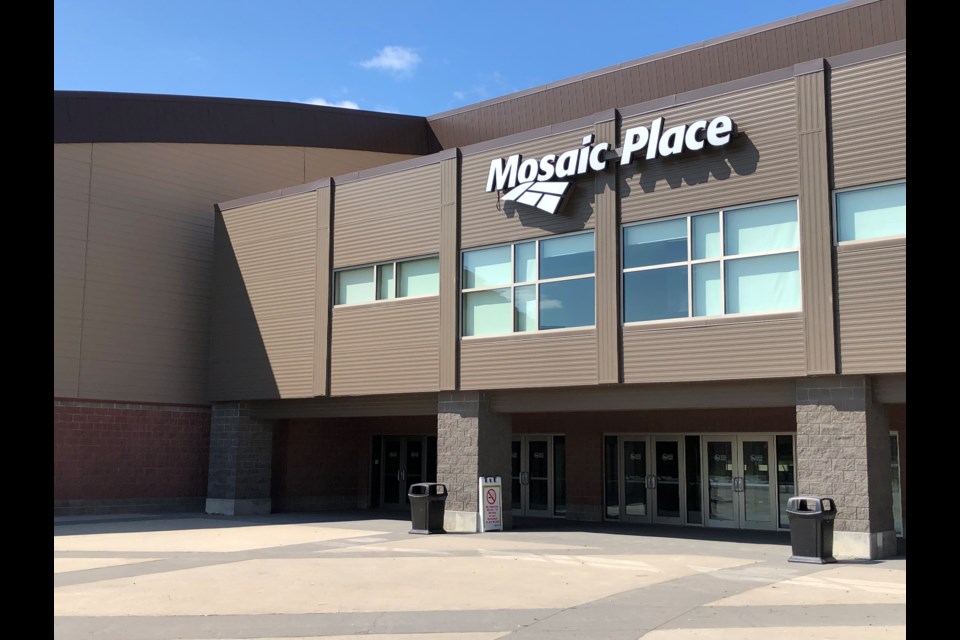The name of Mosaic Place will be no more by next January, as The Mosaic Company is ending its 10-year naming rights agreement with the city to refocus on other community partnerships.
The City of Moose Jaw and the potash company made the announcement during a press conference in the Belle Plaine/Esterhazy Room in Mosaic Place on March 11.
“It’s been a fantastic partnership,” said Sarah Fedorchuk, vice-president of public affairs and government relations with The Mosaic Company.
However, the potash giant will not renew an agreement that’s been in place since 2011 because it plans to shift its business priorities to focus more on food security and water stewardship, she continued. This will also include developing new partnerships with community organizations — to be named in the coming months — that concentrate on those priorities.
The company will not leave the municipality empty-handed during the transition, as it will provide funding until the hand-over to a new partner is complete, Fedorchuk added. Its agreement with the WHL Moose Jaw Warriors will remain, while nothing will change for the 250 Mosaic employees who live in Moose Jaw and work at the Belle Plain mine.
The potash company informed city administration in early January that it would not renew the naming-rights agreement this year, according to city manager Jim Puffalt.
“The relationship that this community has with Mosaic is not ending, but changing,” said Mayor Fraser Tolmie, who praised the company for being a great community partner and for being “classy” in transitioning out of the agreement.
During the past nine years, the potash giant has invested more than $1.5 million into Mosaic Place and given nearly $2.2 million to community initiatives, the mayor continued. Such initiatives include the health foundation, Hunger in Moose Jaw, the Moose Jaw and District Food Bank, and the creation of the Mosaic Food Farm.
The next steps for the municipality will be to create marketing materials to aggressively promote the recreation and entertainment venue to attract new sponsors, Tolmie said.
“The City of Moose Jaw (is) so grateful for what Mosaic has done for our community,” he added. “When you build facilities like these, and you’re looking for sponsorship, for an organization like Mosaic to step up immediately was just a tremendous boost for our community. And that can never be overlooked.”
The Mosaic Company is being transparent about this transition because it wants to be open about its refreshed community investment strategy, said Fedorchuk. This also ensures that the municipality can create a suitable marketing package to attract new investors.
“This is a really beautiful facility, and we’ve been really proud to have our name attached, but we also really value the relationships and want to be honest with where our dollars are going to be going in the future,” she continued.
Besides Mosaic Stadium in Regina — that naming-rights agreement expires in 2036 — the company also has naming rights to an agriculture-focused stadium in Florida, added Fedorchuk.
With potash production, the last five years have been difficult competitively in North American, as there have been several layers of issues that have hampered the company’s effectiveness to compete globally, she said. Yet, the good news is that 2021 looks to be a stronger year for the agriculture community.
“However, throughout the down cycle, we’ve kept our community investment budget the same, so it hasn’t been impacted,” Fedorchuk added. “We made a commitment to our community partners and to the province that we would continue to invest at the same levels as previously.”




